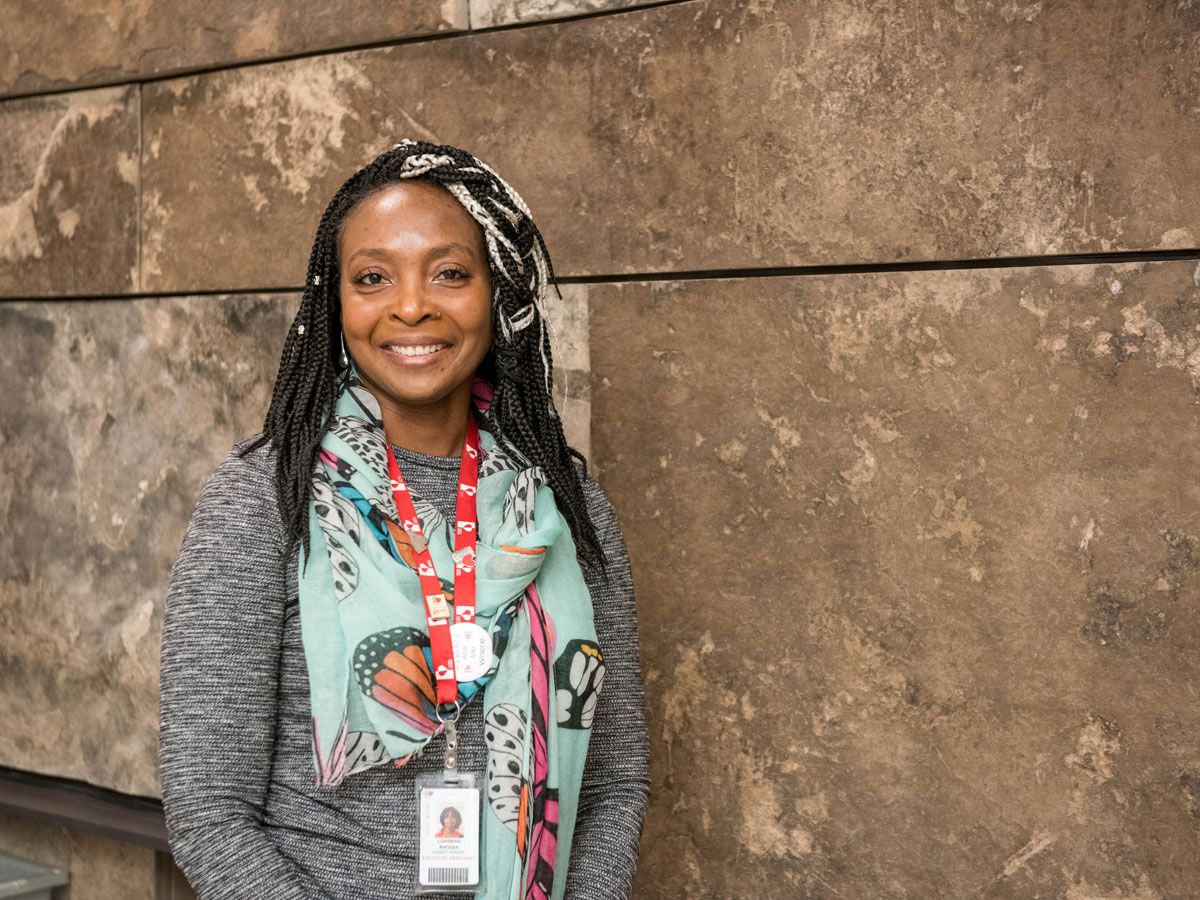Breaking down walls

Photo: Walls to Bridges alumna Lorraine P. is one of the founders of the Walls to Bridges Collective. Photo by Brian So.
A transformational educational experience brings Ryerson students together with people who are incarcerated in an atmosphere of mutual respect and dialogue. On December 5, Ryerson’s Department of Philosophy wrapped up the latest incarnation of its Walls to Bridges program, with nine Ryerson arts students and nine students in a correctional institute taking a course together inside the institution (which isn’t named due to an agreement).
Built on the model of the U.S.-based program Inside Out, Walls to Bridges has been led in several forms by Ryerson professor Kym Maclaren since 2012, originally through Arts & Contemporary Studies. The current program represents an ambitious partnership between the correctional institution and the Faculty of Arts, with help from Spanning the Gaps, which registered and waived tuition for incarcerated students, and offers additional counselling upon release. It also awarded a full university credit to both the Ryerson and the incarcerated students.
Walls to Bridges is an example of Ryerson’s community outreach and engagement, but the program is a true intellectual exchange. “There are various assumptions that people often make when they’re thinking about this course,” said Kym Maclaren. “One is that it’s a service provided to the inmates. That’s not what it is. It’s about bringing people together to build community and work as peers learning together and from each other. It’s about tearing down the ‘us vs. them’ mentality.”
Instead of lecturing, Maclaren facilitates discussions around readings. The class at the institution (PHL 803 – Philosophy Engaging Communities) explored issues of freedom, confinement, and belonging, and represented the perfect opportunity for exchange.
“Out of all the classes I took at university, this program taught me the most,” said Yulian Starchenko, a third-year philosophy student. “It’s an informal classroom structure: it’s not just a single lecturer speaking to you. You have room for open discussion, and you have room for people to express themselves. You learn from each other, and it sticks with you longer.”
“Everybody—inside students and outside students—go in with apprehensions and worries about who they’ll be in relation to each other,” said Maclaren. “But they find those totally torn down and a real sense of community is built. I think it’s that sense of connecting with the humanity in each other that’s such a surprise.”
This was the case for Lorraine P., a former inside student at Grand Valley Institution for Women who now works in downtown Toronto. She took Walls to Bridges courses from September 2012 to May 2017, and is one of the founders of the Walls to Bridges Collective—a program that trains professors to offer courses in the Walls to Bridges model. The collective also helps build and improve the course-model as offered within the Canadian setting.
“The course asked people to look at the readings and tie them to their experiences,” said Lorraine. “That in and of itself was difficult to do, especially for people who are incarcerated who are examined in every single move they make. It’s very, very hard for them to talk about feelings without thinking, ‘Here’s another way for people to scrutinize and label me.’
“Icebreakers can do so much in a roomful of strangers. That really worked for our group. Through classes, we learned to trust and bond with each other.”
Ryerson is the first Canadian university to also extend Walls to Bridges into the community, bringing Ryerson students together with people on parole. The Faculty of Arts hopes to continue growing the program.
“There are some inside students who were already on track to pursue studies, but there are some who had no idea that was something they wanted to do or could do,” said Maclaren. “The Ryerson students learn a lot about the social barriers that people face, and they also learn a lot about themselves by carrying on these conversations. They learn about assumptions they might carry, and about the power of having meaningful conversations with other people.”